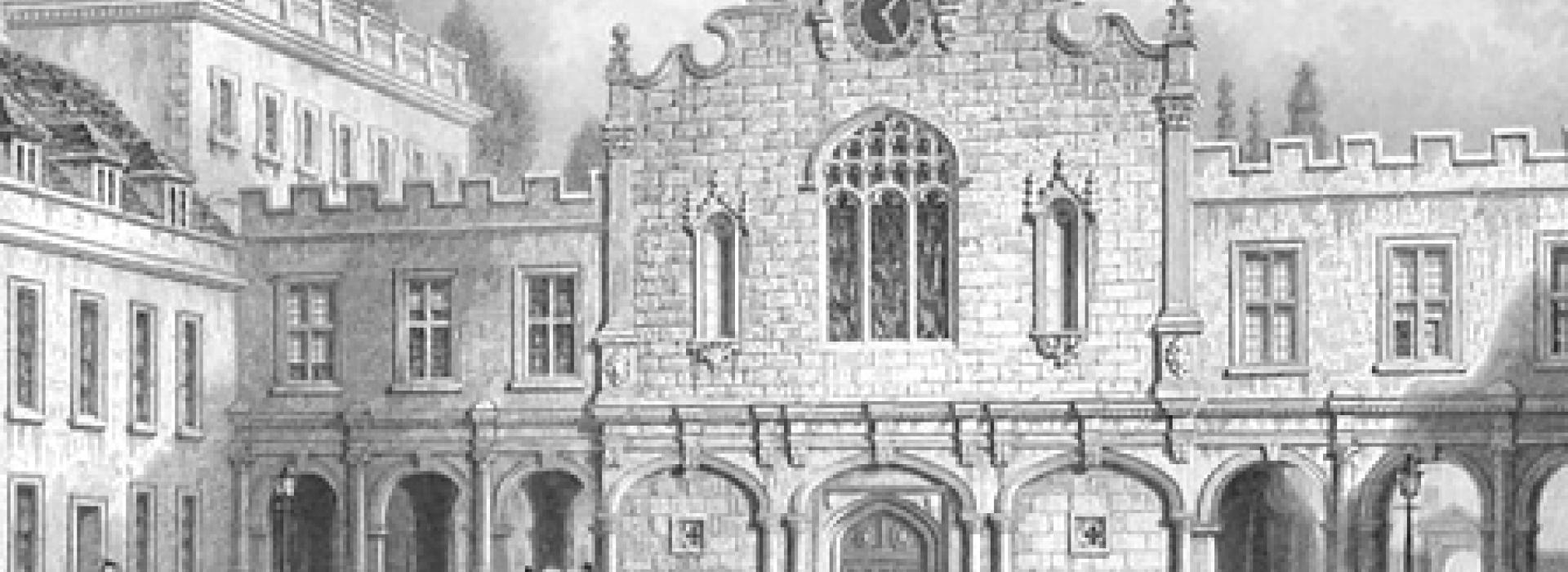Breadcrumb
Fellow and Director of Studies in History
Telephone: 01223 338240
Email: mjr28@cam.ac.uk
Magnus Ryan is a University Lecturer in the History Faculty and is usually one of the two Directors of Studies in History here at Peterhouse. He read History at Queens’ College (1985-8), where he stayed for his doctorate on the Feudal Law in medieval Europe. He was a Junior Research Fellow at St John’s College, Cambridge, before moving to All Souls College Oxford as a Post-doctoral Research Fellow in 1994. In 1999 he took up a university lectureship in later medieval history at the Warburg Institute, University of London, and joined the Cambridge History Faculty in 2006.
Magnus Ryan’s principal research interests are the history of political ideas, especially in the Middle Ages, and the relationship between law and politics between roughly 1100 and 1600. For his doctorate he studied the creation and influence of the feudal law in the later middle ages. Since then he has published on aspects of Roman and canon law in medieval history. Roman law and its sister, the canon or ecclesiastical law, were the only laws taught throughout Europe at the universities during the medieval period; as a result they possessed an elevated status and together formed what medieval lawyers and other thinkers routinely called ‘the common law’, which enjoyed universal rather than local authority, unlike the law of any specific region or polity. Magnus Ryan is especially interested in Roman law as a component of political vocabulary in later medieval thinking and polemic and is currently devoting most of his time to this theme, which formed the main topic of his Carlyle Lectures series, which he gave in 2004 in Oxford.
Magnus Ryan teaches the history of political thought, beginning with Plato and finishing in 1600, as well as general medieval European history from 900 to 1450. He also teaches a first-year course in collaboration with Dr Annabel Brett of Gonville and Caius College on ‘Nature and the City in late-medieval legal and political thought’.
An interview with Magnus Ryan on his research interests can be found here.
- ‘Feudal Succession,’ in J. Cairns and P. Duplessis (eds), From Casus to Regula (Edinburgh, March 2010), 143-157.
- 'Zur Tradition des langobardischen Lehnrechts', in G. Dilcher and D. Quaglioni (eds), Die Anfänge des öffentlichen Rechts, 2. Von Friedrich Barbarossa zu Friedrich II., (Bologna/Berlin, 2009), pp. 225-245.
- Maitland. State, Trust and Corporation (edited with David Runciman, Cambridge 2003)
- 'Widerstandsrecht und Lehnswesen', in Wissen, Gewissen und Wissenschaft im Widerstandsrecht (16.-18. Jh.) /Sapere, coscienza e scienza nel diritto di resistenza (XVI-XVIII sec.), ed. K-H. Lingens and A. de Benedictis (Studien zur europäischen Rechtsgeschichte 165, Frankfurt am Main 2003), pp. 49-80
- 'Rulers and Justice, 1200-1500', in The Medieval World, ed. P.A. Linehan, J.L. Nelson (London 2001), pp. 503-517
- 'Bartolus of Sassoferrato and Free Cities', Transactions of the Royal Historical Society (2000), pp. 65-89
- 'The Oath of Fealty and the Lawyers' in Politische Ideen im Mittelalter. Theorie und Wirklichkeit der Macht (Veröffentlichungen des Max Planck Instituts für Geschichte), eds. J. Canning, O.-G. Oexle (1999), pp. 209-226
- 'Ius Commune Feudorum in the Thirteenth Century', in ... Colendo iustitiam et iura condendo... Federico II Legislatore del Regno di Sicilia nell'Europa del Duecento. Per una storia comparata delle codificazioni europee, ed. A. Romano (Rome 1997), pp. 51-65.
Encyclopaedia Entries
- “Glossators and Postglossators,” in The New Oxford Companion to Law (Oxford 2008), cols. 503-5.
- “Feudalism,” in The Sage Encyclopedia of Political Theory (Los Angeles/London 2010)
- “Corporation Theory”, in Encyclopedia of Medieval Philosophy (Dordrecht 2010)

